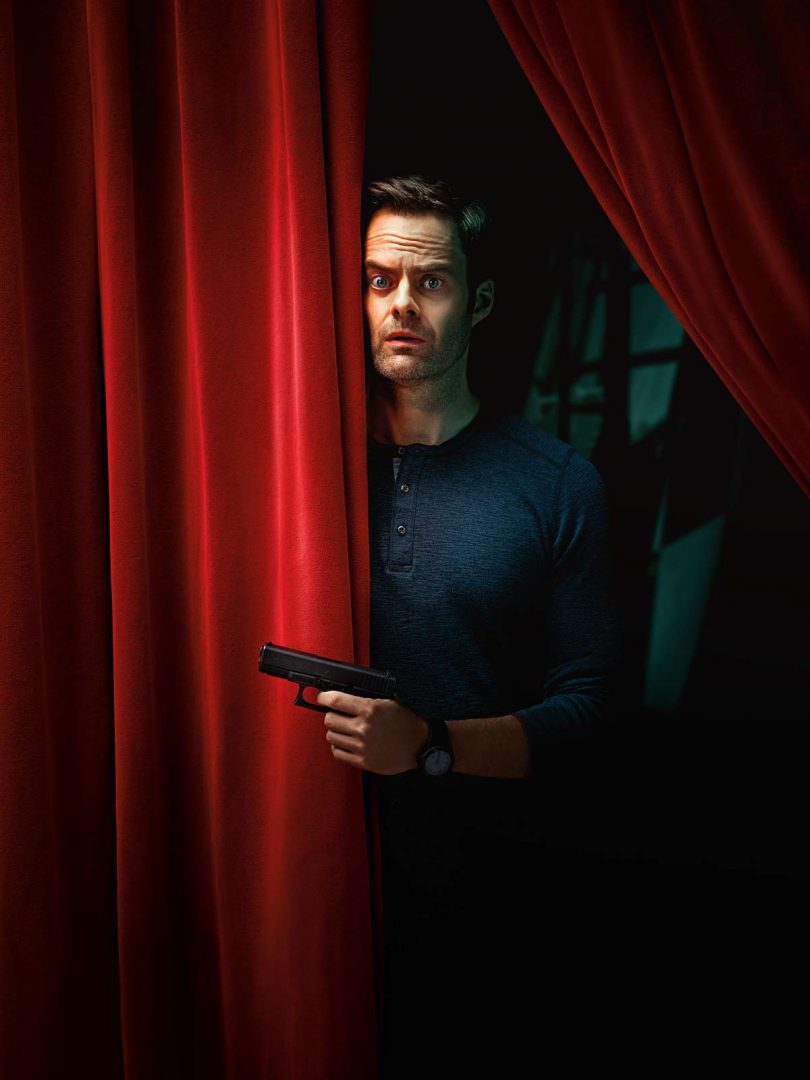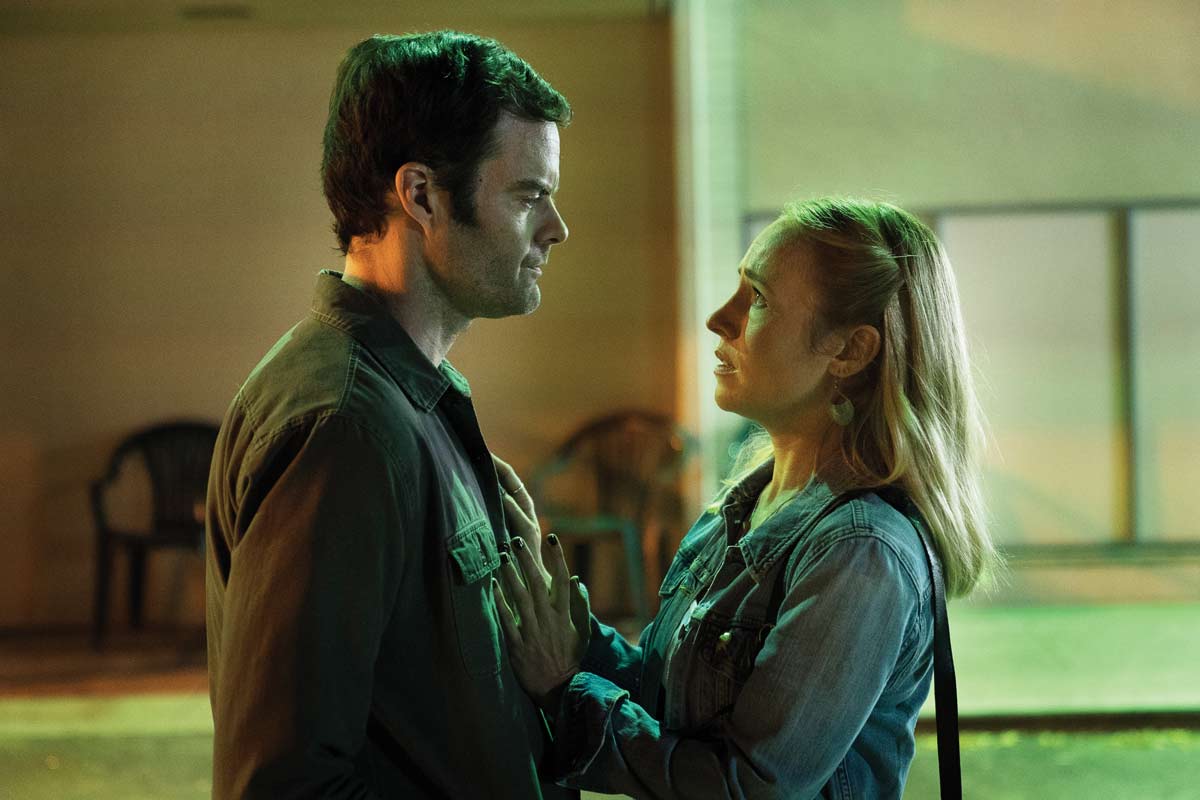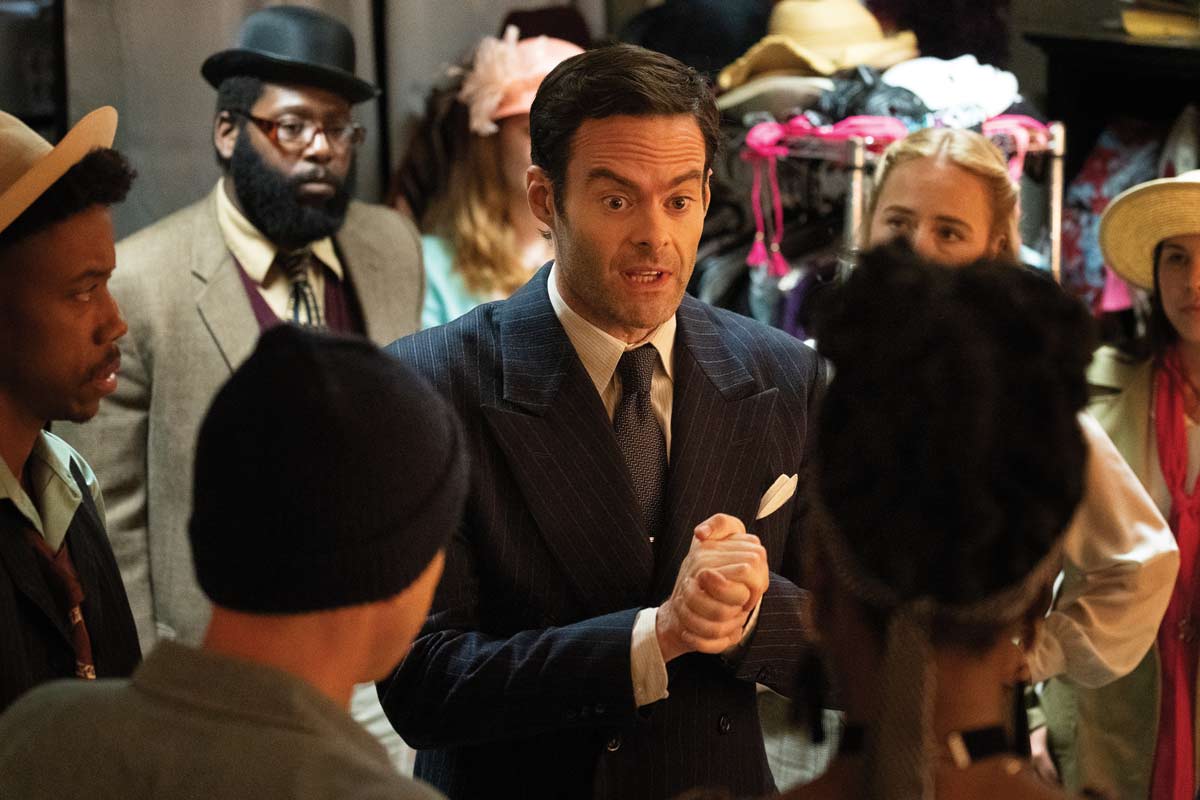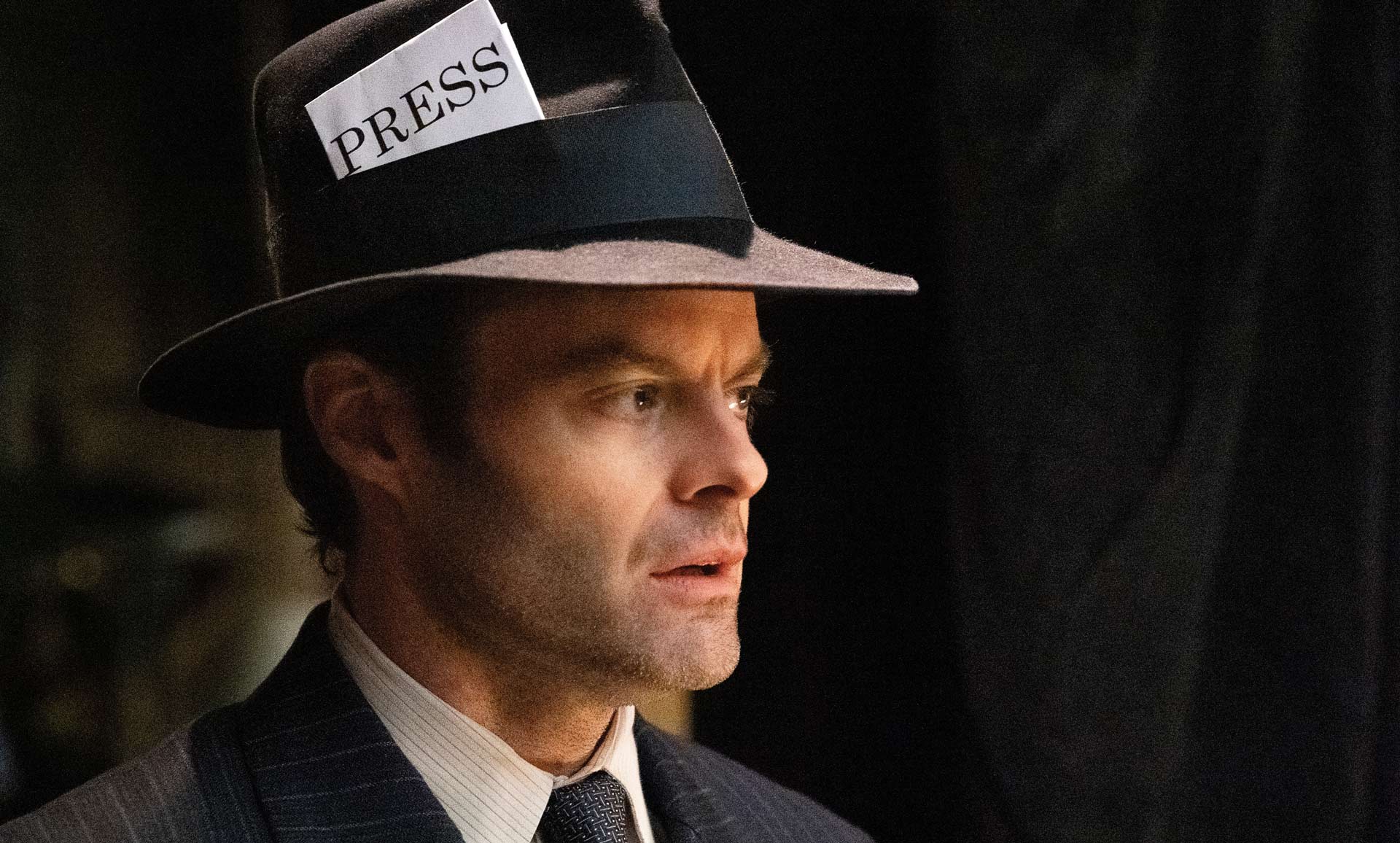Don’t Be a Hader
To imitate a character, an actor must be determined beyond all costs. It was the 19th century playwright, George Bernard Shaw who posed that “imitation is not just the sincerest form of flattery – it’s the sincerest form of learning”. So when American comedian, Bill Hader, made his SNL debut in 2005 where he played a psychologist giving woeful views on life and death, little did he know that he would soon become one of the most learned men in Hollywood.
Bill Hader’s personality is undeniable. Born in 1978 in Oklahoma, Hader was born into a family with a passion for the arts. He started off his own career with a love for producing movies – taking any job on offer to make his dream a reality. He started writing sketch comedy, traveling around the circuit of Los Angeles where he was scouted by Will & Grace star and fellow comedian, Megan Mullally who put him in touch with Saturday Night Live. It would be rude not to mention that he was nominated for an Emmy in 2012 for his impressions on the show.
One of Hader’s greatest achievements since leaving SNL in 2013 has been his HBO series, Barry, which won him a further two Emmy’s and it was nominated for a further five. The series is about Barry, a hitman who journeys up to LA to kill someone and then finds himself joining an acting program. Calamity ensues. It’s Hader in his prime. Barry’s second season came out late March to world-wide acclaim and offers a darker twist to the characters.
We talk to Bill Hader about Barry’s second season:
Without giving away any spoilers – which I know you can’t – what can you tell us about this season?
For Barry, this season he’s dealing with the fact that, at the end of last season, while we don’t know exactly what happened to Moss, we do know that he perpetrated violence against her in some way and it’s the first time he has done for his own self interest; it wasn’t about a hit or a contract or the work, it was about him finally having a life that he had wanted badly, and trying to protect that. But now he’s traded violence in that way so he’s in this place of wondering, well, what came first?
He has always thought: I went to Afghanistan and came back and this guy made me become a killer, and I kind of fell into this work. But now, he’s thinking, wait, was I a killer first? And did I just happen to fall into the right niche?
He was kind of feeling that way in season one, but because now he’s committed violence in his own self interest, it’s kind of spun him out a bit.

“Can I change my nature?” is a big question for this season, and one that all the characters are going through.
I’m 40, and my friends are all in their 40s now too, and we’re all going, ‘god, I’m still kind of acting the way I did when I was 15.’
You might throw a temper tantrum, or really drink, have anger issues or food issues or lie and you think, ‘I should really have a handle on this now. I’m still doing that shit.’
And you get terrified, thinking, ‘well is that just me? Is that just who I am? There’s no changing that?’ That’s really terrifying. And if your version of that was murdering people, that’s awful.
So it’s him hopefully trying to find a way of reconciling that and maybe using the acting class or putting it into the work or whatever it is.
So would you describe it as a bit of a life crisis that he’s going through?
Well, it’s the same crisis as season one, which is basically a murder crisis.
The show is a huge smash, why do you think it resonates so well with people?
I don’t know, I have no idea why anything works. That was the thing I learned at Saturday Night Live – the thing you would work crazy hard on and sweat over, people would be like, ‘oh, it was…fine.’
And then John Mulaney and I go, ‘ah, we’ll do this Stefon thing on Update, but I don’t really care about it.’ And then that thing blows up.
And you think, ‘but we worked so hard on the Vincent Price specials and five people like it, but that’s the thing that went huge?’ So I just stopped thinking about that and I now think: I’m just going to try to make the best thing possible, and do the best I can, with whatever talents I have at the moment, and try to surround myself with people who are smarter than me and better than me and hopefully it’ll work out.

Did you have any ideas about a season two when the project started? Or did it just evolve over the course of season one?
When Alec Berg and I sat down and talked about the show for the first time, we were at a diner and we were working on another idea. He was writing Silicon Valley and the writers room started there at 10, and so he and I would meet at 8:30 at this diner – because Alec loves to work I guess – and we were talking about this other idea for like a month, and then one day, I came in and I had my notes for the other idea and I went, ‘you know what, this stinks. This just doesn’t work.’ And he was like why? Why do you think? I go, ‘there’s no stakes to it, there’s no narrative propulsion – it kind of just runs in place.’ The TV shows I liked were Breaking Bad, obviously, and The Sopranos, and Game of Thrones, The Americans and Handmaid’s Tale and these shows that have a real narrative propulsion, these great rich characters, but where you also go: but what’s going to happen next? I’d just like to do that, but with a comedy. And then I just, kind of in frustration said, ‘what if I was a hit man?’ And Alec went: I hate hit men. Because there’s more hit men in movies than there are in real life.
And I go, ‘but what if it was me, me as a hit man, like me being me, like me just awkward Bill, as like a hit man’, and he was like, yeah, so we just started talking about this guy, and then very quickly we gathered he was in an acting class. I don’t know how, but I remember, and I remember specifically very clearly Alec saying, oh, hit man in acting class is funny.
This is a long-winded way of saying, in that conversation, it was the whole series. How this could happen, then this happens, and then this happens to him and then, he could end up here and we went, oh, that’s really cool. And then wrote that out.
And will it stay that way? I don’t know. But if we get a season three, we kind of know emotionally that he’s in this place, and season three might go like this, or like that.
You said you were trying to make the best of whatever talents you have at the moment – does that vary or fluctuate then?
Yeah, you never know how funny or good you are. Something might happen in your life, or the well just dries up – you see it happen with people.
It’s like working out, you have to constantly be doing it because it can atrophy.
Watching things, reading things, getting excited about stories, it’s mostly about just being inspired – you hear a piece of music and you just envision a scene and you get excited, and then you want to tell someone about it.
I heard this piece of music last week, and I figured out how to end episode two. This happened last week. There’s a piece of music I just heard from this band, and I thought, ‘if we put that over it and we take out this, that’s a little simpler.’ And that feeling, you have to constantly be harnessing it.
I understand that this season’s going to be darker….
It is way darker. All the characters go into a darker place this season.
It’s a 30-minute show, so it’s a comedy, but the timing’s the only thing that makes this funny.
It is much more dramatic. Sarah Goldberg this season is unreal. We’ve all been in the edit bay, calling her our straight A student – you don’t have to tell her anything. And Anthony Carrigan, oh Hank, he just owns that character. And even he goes to a darker place.
Again, when the question is can I change my nature? And you have these big existential questions and the guy’s thing is murder, you don’t want to be glib about it, and so you have to be real with it.

That’s why you do stuff at HBO, and you make it a TV show, because you don’t have to wrap it up in two hours, and you can explore these things.
This season, Barry definitely has moments of real yearning, and you really sense that he’s this guy just wanting to connect with somebody – he just so badly wants to connect with somebody. And if you’re put on this earth to murder people, it makes that hard.
Can we digress for a second and talk about your Emmy moment? I read that you hid in the bathroom afterwards….
Yeah, I did hide in the bathroom afterwards.
I did not think I was going to win, and so I just was sitting there. I was like, ‘oh, I’m going to go to the party and have a drink, and then I gotta go home because we’re going to start shooting season two the next day.’
And then I won, and next thing you know you’re being interviewed but you go around all these interview stations and I turned to my publicist and was like, ‘I gotta go to the bathroom.’ And I just went into the stall and sat down and was like, [deep breaths], what happened?
I thought it was going to be Donald or Ted Danson, that’s who I thought it was going to be.
But you go to the Emmys and the afterparty, and it’s a bit of a s**t show anyway, because people will just want a picture – not with you, but with the Emmy. I had three people take it out of my hands and take a picture – their husband or wife took a picture of them holding it, and I was like, this is weird.
You’re very self-deprecating –how are you coping with the praise and plaudits being lavished upon you now?
I never knew if I was a good writer or not, until I started writing the show, and then I was like, ‘oh, this is the thing I’m good at.’ It takes a while sometimes for you to figure that out.
At SNL, I just told myself I wasn’t a very good writer because I couldn’t write sketches. Then I wrote the pilot with Alec, and Alec is a phenomenal writer and he really gave me a lot of confidence in what I was doing.
And now I’m watching season two going: do I have any other facial expressions?
I have the same facial expression in every scene of this episode. Can we please find more facial expressions?
When you came to LA, you wanted to direct, rather than act – now you have an award from the DGA – does that help you feel more confident?
Yeah, that was a massive honour, that was huge. That’s all I wanted to do since I was a kid. Each thing happens and you’re like, that’s neat, but then the next day there’s new things you’re trying to figure out. You have to just keep focused and concentrated on what you’re doing.
So, you can’t sit around polishing your trophies too much?
Yeah. But I don’t do that anyway, I’m not that kind of person anyway.
It’s nice to have people see me as something other than the guy who does voices – that’s been the nice thing. Now, I get: they’d be interested in you writing this or directing this, or things like that, and that’s really gratifying. That’s super gratifying, because that’s always what I want to do. Being in front of the camera has always been a thing that’s a bit strange to me – like I was saying, it’s like, do I have any facial expressions? I have the same facial expression in every f**king scene. This is embarrassing. I have a furrowed brow in every f**king scene. Why didn’t anybody tell me I have this massive furrowed brow?

I have learnt that when something goes really well, you enjoy it – you should enjoy it. But it is this weird energy – everyone’s lovely, so you can’t really complain when it’s just people saying nice things to you – you sound like a dick if you’re complaining. It’s all very sweet. But it’s very abnormal. It’s incredibly abnormal.
What should be validating is the work you’re doing.
And what’s validating to me is someone I respect going, ‘hey, I watched Barry and I loved it.’
How does success affect you going into season 2? Do your standards just get a little bit higher?
Yeah, your standards get a bit higher, but then you also feel like you’re being a bit paranoid, too. You don’t want to get it to where you then smother it. So it’s finding a balance.
I’ve seen friends go through it where they get an Oscar or they win awards and stuff, and then, a couple years later, they’re like, ‘oh, I have to take this job for money’ or ‘I’m unhappy because of this’, or ‘this thing bombed’ – so it’s all a roller coaster. The whole thing is a big roller coaster, and that’s what makes it exciting.
So, my goal is just to be able to look at something in the best of my ability, just look at it and go, well, that’s what we intended to do.
I can’t really control how people are going to react to it. But we like that, and hopefully you will, too.
I don’t really read reviews. There’s the kind of criticisms that are like: your kid should probably listen a bit more, your kid’s interrupting people in class, and you go, okay, we’re going to go work on that. But if the criticism is: your kid’s eyes are too far apart, Well, there’s nothing I can do about that.
There aren’t many people who take on the mantle of writing, directing and acting at the same time – how do you handle that intensity?
It is intense. Yeah. I know, it’s hard. I turned 40 and then did all this work. I haven’t really had any time off in three years, probably. And then, in the middle of that, yeah, you get awards, you go through all these other things.
And then, just vacuuming on Saturday, my back went out.
I was just vacuuming. I was like, ahh, and I just fell on the ground and was like agghghhh! I was just laying there thinking, I need a vacation.
Your back aside, do you feel like you need to have all those elements in there, that you wouldn’t be satisfied if you didn’t do all of them?
I sound pretentious or whatever, but if you consider yourself an artist, you have an idea, you have this vision, and you’re just trying to see it through, and the more time and control you can have, the more you can you prioritise the things that really matter to you.
The other aspect of it is a thing I learned at SNL – I want to make my own mistakes.
I’d rather fall on my own sword, than be a part of a thing that I have no control over.
Barry is showing on SoHo, 8pm on Wednesdays and same day on NEON.

